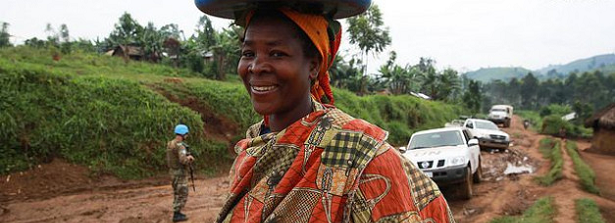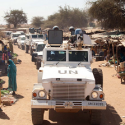How can Food and Nutrition Security programming “do good” in fragile settings?

On February 1, 2018, The Broker, supported by the Food & Business Knowledge Platform (F&BKP), organized a workshop to conclude its project on conflict sensitive Food and Nutrition Security (FNS) programming in fragile settings. Bringing together policymakers, researchers and practitioners working on food security in fragile settings, this workshop served to share the lessons learned (captured in the final report), present the tool for conflict sensitivity that was developed based on the project’s main findings, and discuss ways forward for integrating conflict sensitivity and stability into FNS programming. You can download a full report of the workshop here.
The workshop, hosted at the F&BKP offices in The Hague, was kicked off by a brief presentation of The Broker’s own project results, paying special attention to the tool for conflict sensitive FNS programming. This tool, founded on the main findings of the study, provides a method to integrate conflict sensitivity into the daily practice of FNS programming at embassy level and helps identify where FNS programmes can contribute to stability. As the study builds on the daily practice of conflict sensitivity at the embassy, the tool is tailored specifically to the realities of embassies’ FNS programming cycle. It offers a method to help identify what can realistically be achieved by an FNS intervention with regards to contributing to stability. Additionally, it provides guidance on how to ensure the daily practice of programme management facilitates conflict sensitivity to maximum effect.
| Documents to download |
|
Testifying to the multi-dimensional nature of conflict sensitivity, a second presentation moved from the daily practice of embassies to the Dutch policy instruments for Private Sector Development (PSD) managed at the central level. Mark van Dorp (consultant for SOMO) and Charlotte Vollaard (Oxfam Novib) presented the preliminary findings of their joint project, which focuses on conflict sensitive approaches in PSD support instruments. The third and final presentation focused on conflict sensitivity in the implementation of an FNS programme. David Betge, land-rights expert at ZOA, shared his experiences with ZOA’s irrigation programme Maji Ya Amani (Water for Peace) implemented in the Democratic Republic of the Congo (DRC). This presentation brought the workshop full-circle, as it reflected the importance of many key aspects for conflict sensitive programming also brought forward in The Broker’s project.
The three presentations gave ample input for the participants to engage in a fruitful discussion on the promotion of conflict sensitivity in FNS programming and on the integration of stability as an explicit goal in programme design. In order to move forward on this issue a number of practical recommendations and knowledge gaps were formulated. Among others, the importance of personal experience of embassy- and programme-staff and flexibility to adjust programmes to changing circumstances were highlighted as crucial elements for conflict sensitivity and gave rise to some lively discussion. In addition to the important insights, additional value of this workshop lay in the fact that it brought together policy makers, researchers and practitioners to exchange ideas and experiences about this topic. As (in)stability and food security will continue to feature high on the development agenda in years to come, it is crucial that experts with different perspectives work together and share their views so as to achieve positive and sustainable impacts. Both The Broker and the F&BKP are therefore committed to continue their work on the nexus of FNS and stability. The F&BKP through expanding its network and activities within this exploratory knowledge trajectory and The Broker through piloting its tool and follow-up projects.






